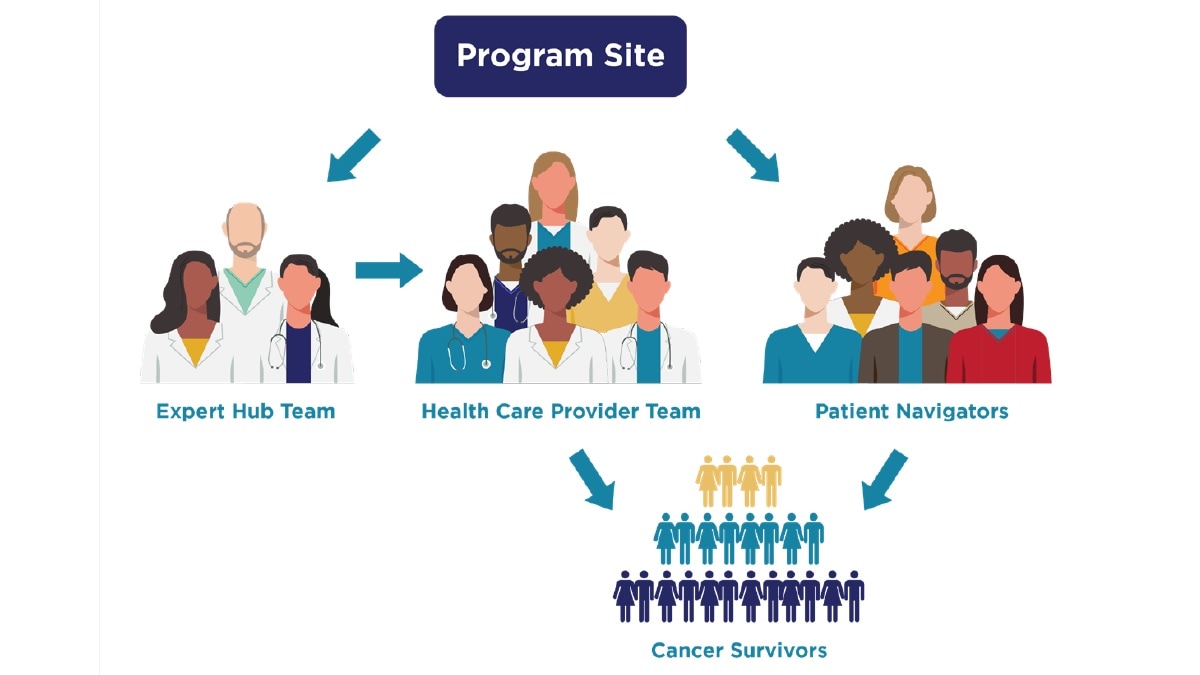What to know
Four National Comprehensive Cancer Control Program sites in Kansas, Montana, Nevada, and South Carolina were funded to implement Project ECHO’s telementoring platform and engage patient navigators to enhance care for cancer survivors in rural communities.
Overview
Rural populations in the United States face higher cancer death rates than urban populations, despite lower overall cancer incidence.1 CDC conducted a pilot study with National Comprehensive Cancer Control Program (NCCCP) sites in Kansas, Montana, Nevada, and South Carolina to reduce health inequities experienced by rural cancer survivors. The sites were funded to implement Project ECHO's telementoring platform and engage patient navigators to enhance care for cancer survivors in rural areas.
Project ECHO and patient navigation model

Project ECHO
Project ECHO (Extension for Community Healthcare Outcomes) uses telementoring within communities of practice to increase workforce capacity and enhance the knowledge and skills of rural health care providers. Staff at NCCCP sites worked with various partners to:
- Conduct telementoring sessions with HCP teams.
- Plan and host ECHO sessions for health care teams, including physicians, nurses, nurse practitioners, patient navigators, and social workers serving rural areas, to:
- Provide education on the needs and issues faced by rural cancer survivors.
- Improve and increase medical and social support services provided to rural cancer survivors.
- Provide education on the needs and issues faced by rural cancer survivors.
Patient navigation
Cancer patient navigation aims to remove barriers to health and mental health care. Staff at the NCCCP sites worked with rural clinics to:
- Identify cancer survivors.
- Link health care providers and cancer survivors to state and local resources.
- Partner with a rural federally qualified health center to connect cancer survivors with patient navigators.
- Help patient navigators refer cancer survivors to wellness programs.
Project achievements
Project ECHO
- 21 ECHO sessions were delivered.
- 240 participants attended ECHO sessions.
- 79% of ECHO session participants said they intended to apply what they learned during the sessions.
- 92% of participants said they learned something during the sessions.
Patient navigation
- 16 patient navigators were trained to serve cancer survivors in rural areas.
- 164 survivors were helped by patient navigators.
- Henley SJ, Anderson RN, Thomas CC, Massetti GM, Peaker B, Richardson LC. Invasive cancer incidence, 2004–2013, and deaths, 2006–2015, in nonmetropolitan and metropolitan counties—United States. MMWR Surveill Summ. 2017;66(14):1–13.
